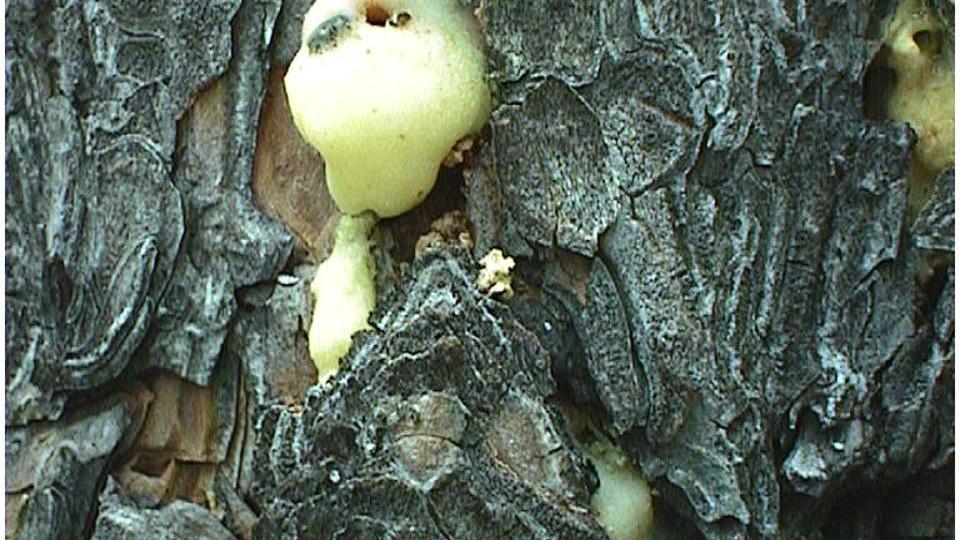Naturalist and author Dave Goulson explains the shocking drop in insect numbers and what we can do to help before it’s too late.
Insects have been around for more than 400 million years, their ancestors crawling out of the oceans to colonize the land long before dinosaurs appeared. They have been hugely successful, evolving into an astonishing variety of more than a million known species, of which perhaps four million remain to be described by science. There are more than 300,000 different species of beetle alone.
I’ve been obsessed with insects all my life; they are amazing, often beautiful, and lead fascinating, peculiar lives. Without these tiny living things, the world wouldn’t work – they pollinate, fight pests, recycle organic matter (from manure to corpses, tree trunks and leaves), they keep the soil healthy, they spread seeds, and much more. They provide food for many larger living things.
An alien looking down on Earth at any point in its history within the last 200 years would have concluded that insects are the dominant life force. It is, therefore, deeply worrying that insects appear to be experiencing a massive decline.
How to help insects
• Grow bee-friendly flowers (see Dave’s book Gardening for Bumblebees for ideas)
• Turn part of your lawn into a mini lawn
• Build or buy a bee hotel
• Avoid using pesticides
• Learn to love weeds like dandelions
• Dig a pond (even a tiny one)
• Grow fruits and vegetables
• Buy local, seasonal, and organic food
• Campaign for your city to be pesticide-free (visit www.pan-uk.org/pesticide-free for advice)
In Germany, the number of flying insects has decreased by 76% over the past 27 years. In the UK, the populations of our more abundant butterflies have decreased by 46% since 1976, and the rarer by 77%, despite great efforts by organizations like Butterfly Conservation. Thirteen British bee species have become extinct and more may follow. In the United States, the monarch butterfly, famous for its annual migration between Mexico and Canada, has declined by more than 80% since the 1980s.
As a child, I remember vividly my parents stopping on long summer trips to scrub the windshield of splashed insect corpses. Today our windshields are shockingly clean. All of this happened in our lifetime and under our supervision.
Photo credit: Pieter Haringsma
There are many reasons for this decline: Loss of habitat due to intensive agriculture, housing and other developments; the blizzard of pesticides used by farmers and gardeners; Climate change; Light pollution; invasive species and more. Our tidy world is largely hostile to insect life.
This may all seem terribly depressing, but don’t despair. We feel helpless in the face of many global environmental problems, but we can all help stop and reverse the decline in insects. Most species are not yet extinct and could recover quickly if we gave them space and a place to live and eat in peace. If you are lucky enough to have a garden, take simple steps to invite insects. It’s amazing how much life a small garden can withstand.
Biologist and wildlife hunter Jenny Owen spent more than 30 years obsessively cataloging every plant and animal she could find in her humble eight-acre garden in urban Leicester, eventually listing no fewer than 2,673 different species of which 1,997 different species were of insect. Britain has around 22 million private gardens; think about how much life they could carry together. Grow a single marjoram plant, perhaps in a pot on your balcony or roof terrace – when it blooms, I guarantee bees and hoverflies will sniff it out. You can feel complacent that you did something to help. Then do a little more.
Photo credit: Pieter Haringsma
If you don’t have a garden, consider participating in national and local campaigns to fill our urban green spaces with wildflowers or to declare your town or village pesticide free. Imagine every park, cemetery, roundabout, and roadside overgrown with wildflowers. we could create a network of wildlife habitats from Land’s End to John o’Groats.
Let us not forget our farmland which makes up 70% of the UK. In my opinion, the transition to increasingly intensive agriculture is unsustainable – it has caused terrible damage to our wildlife and soils, polluted streams and rivers, and contributed to greenhouse gas emissions. You can reduce your own impact and support more sustainable farming practices by buying and eating local, seasonal organic produce, buying loose fruits and vegetables, and reducing your meat consumption. Better yet, grow whatever food you can yourself.
Love them or hate them, we need insects. Three quarters of the plants we grow need pollinators. We have to learn to live in harmony with nature, to see ourselves as part of it and not to dominate it with an iron fist. Our survival depends on it, as does that of the glorious track of life with which we share our planet.
Dave Goulson’s “Silent Earth: Averting the Insect Apocalypse” will be published by Jonathan Cape (£ 20)









